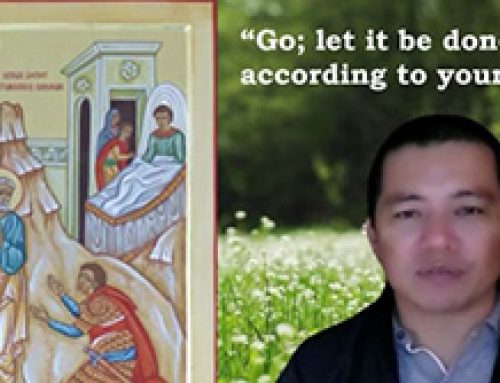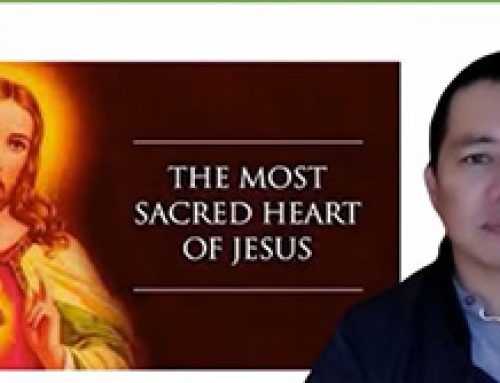Fr Paul reads from the Gospel of Matthew (6: 7-15) in which Jesus tells his disciples to keep it simple when they pray because ‘your Father knows what you need before you ask him’. He then shares the Lord’s Prayer with them. Fr Paul says the theme of today’s Gospel is very simple: how to pray. Matthew, whose Gospel we read from today, puts the Lord’s Prayer right in the middle of the Sermon on the Mount, interrupting his long passage on doing good works in secret. Since the Sermon on the Mount is Matthew’s gathering of Jesus’ teaching on conditions for entering the Kingdom of Heaven, one could say that he deliberately puts this in the very centre of those conditions. The Lord’s Prayer exists in several slightly different versions, not only in Matthew, Luke and an ancient, perhaps first-century Christian document, The Didache, but also somewhat differently among Jewish prayers. The prayer begins with an invocation, and then divides into two halves, each of three requests; the first three are regarding God; and the second three are regarding Christian disciples. The three different petitions about God are really versions of the same prayer. The central petition, ‘may your kingship come’, is a prayer for the completion of God’s plan, may the kingship of God be fulfilled. The first petition, ‘may your name be held holy’, is similar, a prayer that the sacred, unpronounceable Name, the Lord, may be honoured and revered as it should be. The third petition is about actually doing the will of the Father. It also forms Jesus’ second heartfelt prayer in garden of Gethsemane, ‘may your will be done’. Then, Fr Paul says, in the second half we turn to human needs. First is simple, to keep us fed – not just on bread, for the Hebrew word for bread is often used more widely for food in general. Second, we hear that dangerous prayer for forgiveness on condition that we forgive others – a petition which must always be accompanied with searching our own conscience for forgiveness of others. This again is the central petition of the three. Finally, the two complementary prayers, ‘lead us not into trials’ and ‘deliver us from evil’.Fr Paul notes today’s Gospel Lesson – Lent is a time of prayer.






Leave A Comment